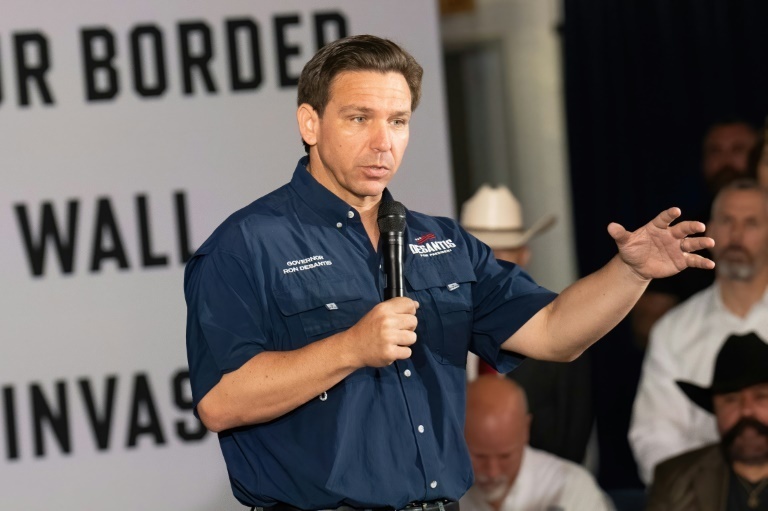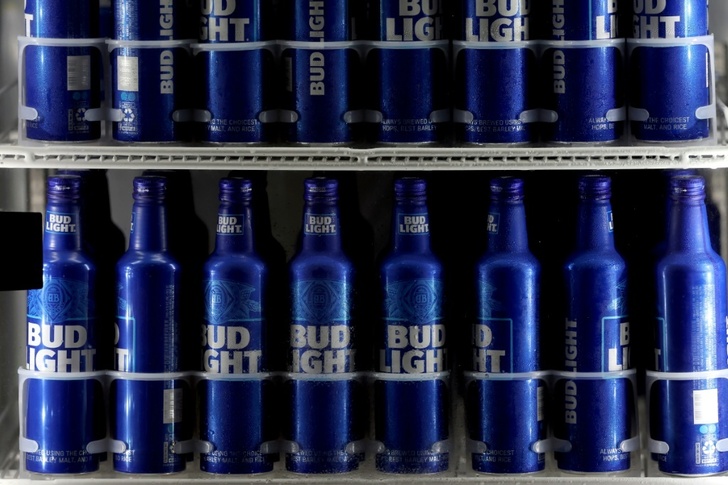Boycotting a beer, attacking products celebrating the LGBTQ community, and criticizing shareholders for promoting diversity: In the face of growing criticism from conservatives, American companies are backtracking on progressive corporate initiatives.
For Bud Light beer, it was a partnership with a transgender influencer that triggered the ire of right-wing consumers, and calls for a boycott.
Typically, such a protest has little impact, but this time in-store sales have seen a slump, with Bud Light even losing its position as the best-selling beer in the United States to Modelo Especial in recent weeks, according to Bump Williams Consulting.
Anheuser-Busch InBev, Bud Light's parent company, quickly launched a marketing counteroffensive with a more typically patriotic ad featuring American landscapes, followed on Wednesday by a campaign highlighting its employees.
The Target discount retailer, for its part, chose to withdraw certain items marketed for Pride Month due to threats against employees.
And at annual shareholder meetings, the number of resolutions opposing companies' inclusion of environmental, social and governance (ESG) criteria -- particularly on diversity -- has more than doubled in the past three years, according to the Sustainable Investment Institute (SII).
- Reaction to Trump -

Larry Fink, the head of asset manager BlackRock, which has promoted sustainable investments in recent years, recently told a conference in Colorado that he has stopped using the term "ESG" because it has become too politicized.
This new vigilance extends to the world of sport: after some players voiced reluctance over wearing rainbow symbols, the National Hockey League decided that teams should no longer wear special jerseys supporting LGBTQ rights because they had become a "distraction."
"The tension of navigating between groups of people that think very, very differently has always been there," said Alison Taylor, a specialist in corporate ethics at New York University.
But the situation has changed as political life has become increasingly polarized, she added.
Corporations "got involved in controversial questions in 2017-2018, when there was a lot of organized resistance to Trump -- this seemed like a really good way to attract young people and generate shareholder value," she said.
While the prospect of affecting real change on issues like abortion and gun control no longer seems possible in the political arena, young people have come to believe they can bring pressure to bear via business, according to Taylor.
- Lobbyists at work -

The sharp reactions to some company initiatives have been amplified by political leaders including Florida governor and 2024 presidential candidate Ron DeSantis, who targeted Disney over some of its progressive positions.
And DeSantis is not alone.
"Conservative organizations," financed in part by companies in the oil and gas sector, "started a campaign to pass legislation in different states to target ESG practices," Webber said.
So far, the results have been mixed.
"Some companies may, at least, back away from some of the rhetoric on ESG. But we've seen very little serious reallocation of assets," he said.
Driven by customers, shareholders and employees, companies have no choice "but to be involved in some political issues," Daniel Korschun, a marketing specialist at Drexel University, told AFP.
However, "people really start to react negatively when they feel like they're being pushed too far," as was the case in the Bud Light controversy, he added.
"There's a very delicate balance between advocating and pushing too hard," he said.
In response, "many managers are pulling back for the moment until they can figure out this new terrain that they're in," he added.
jum-da/nro/tjj
© Agence France-Presse
Your content is great. However, if any of the content contained herein violates any rights of yours, including those of copyright, please contact us immediately by e-mail at media[@]kissrpr.com.
Source: Story.KISSPR.com

